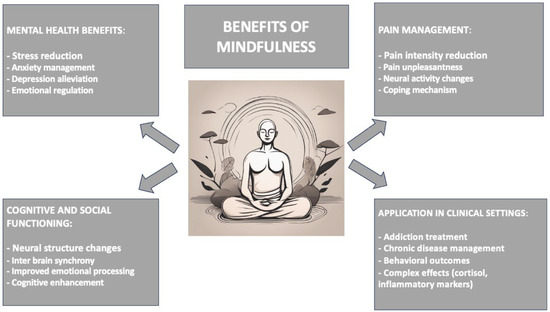In a world increasingly dominated by stress, long working hours, digital distractions, and fast-paced lifestyles, anxiety and mental health issues have become widespread, especially among the youth and middle-aged population. A new study offers hope by highlighting how mindfulness techniques—a simple yet powerful approach to mental well-being—can significantly reduce anxiety and improve emotional health.
🌿 What Is Mindfulness?
At its core, mindfulness means paying full attention to the present moment—without judgment or distraction. Whether it’s through mindful breathing, meditation, or even eating consciously, this ancient practice helps individuals become aware of their thoughts and feelings, allowing them to manage stress better.
ALSO READ:-How the Brain Builds Habits—And What Science Says About Breaking Them
🧪 Research Backing the Practice

The study, led by Resh Gupta, a postdoctoral research associate with the Mindfulness Science and Practice research cluster, sheds light on the link between mindfulness and anxiety. According to Gupta, while many people know that mindfulness can calm the mind, experts are now investigating which types of mindfulness practices are most effective for different kinds of anxiety.
“We all experience anxiety, but it manifests differently for everyone,” says Gupta. “It can range from everyday worries to serious clinical disorders. Our study suggests that a tailored approach to mindfulness could yield better results.”
Published in the journal Neuroscience and Biobehavioral Reviews, the research also includes contributions from Prof. Todd Braver, a cognitive neuroscientist from Washington University, and Prof. Wendy Heller from the University of Illinois.
🧠 How Does Mindfulness Help?
The researchers found that mindfulness enhances a brain function called cognitive control—the ability to regulate one’s thoughts, emotions, and actions to achieve specific goals.
For example, if you plan to go to the gym after work but feel tempted to cancel, cognitive control helps you stick to your decision. Mindful individuals are better at maintaining such focus, which ultimately reduces mental clutter and anxiety.
Neuroimaging studies also reveal that regular mindfulness meditation activates brain regions responsible for decision-making, emotion regulation, and attention. These findings confirm that mindfulness is not just a spiritual or wellness trend—it’s backed by science.
Why It Matters Today
With rising cases of depression, burnout, and panic attacks—especially in urban and corporate settings—building mental resilience is more crucial than ever. The study recommends starting small: just 5–10 minutes of daily mindfulness practice can significantly improve focus, calmness, and clarity of thought.


